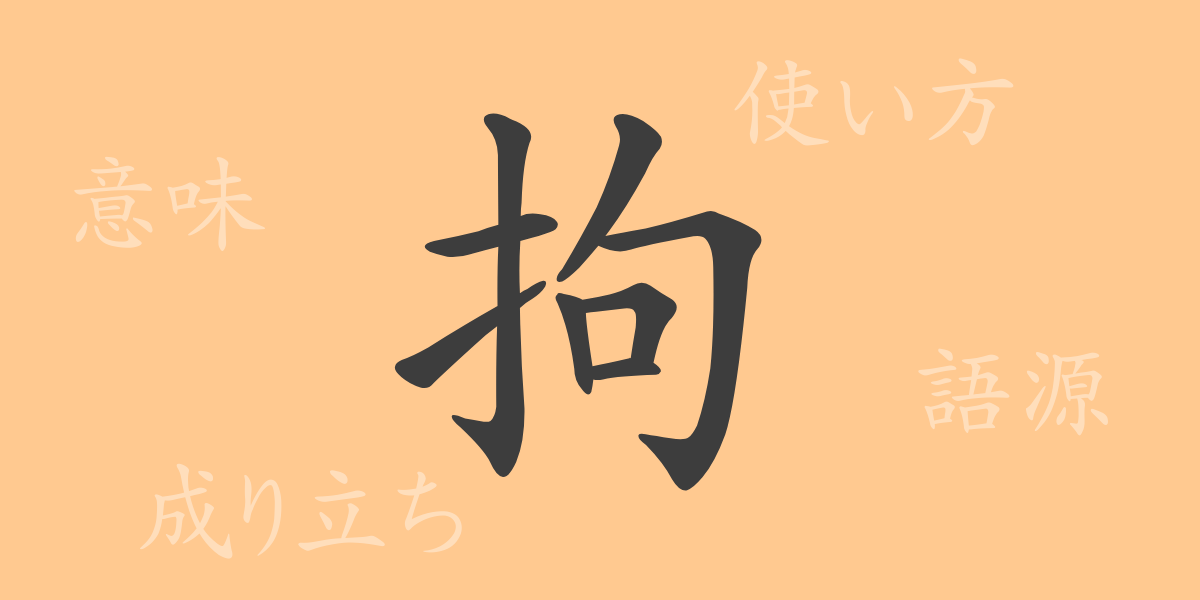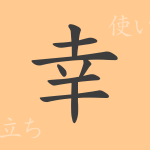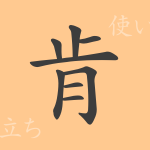In the rich tapestry of Japanese written culture, common kanji are deeply embedded in our daily lives. Among these, the kanji “拘(こう)” is frequently used in specific contexts and situations. Understanding its meaning and usage accurately is essential for employing the language more richly and appropriately. This article delves into the origins, meanings, uses, readings, stroke count, radical, and related idioms and expressions of the kanji “拘(こう),” revealing its full scope.
Origins of 拘(こう)
To explore the origins of the kanji “拘(こう),” we must look at its etymology. “拘(こう)” originated in ancient China as a character depicting the act of capturing something with the hands. It evolved from a pictograph showing a hand grasping a rope, symbolizing the act of seizing and holding on to something. Over time, this kanji came to mean “to restrict” or “to be confined.”
Meanings and Uses of 拘(こう)
The kanji “拘(こう)” primarily means “to be confined,” “to be restricted,” or “to be particular about something.” In legal terms, it appears in the word “拘留(こうりゅう),” meaning “detention,” which also conveys the sense of being confined. In everyday conversation, it can be used as in “拘りが強い(こだわりがつよい),” describing someone who is very particular or fixated on certain things.
Readings, Stroke Count, and Radical of 拘(こう)
Here are the basic details about the kanji “拘(こう).”
- Readings: The on-yomi (Chinese reading) is “コウ(こう),” and the kun-yomi (Japanese reading) is “かか.わる(かかわる).”
- Stroke Count: “拘(こう)” has a total of 9 strokes.
- Radical: The radical is “手(てへん),” meaning “hand.”
Idioms, Phrases, and Proverbs Using 拘(こう)
Understanding idioms and expressions containing “拘(こう)” helps to grasp its deeper meanings and uses. Examples include:
- 拘泥(こうでい) – Being overly particular about minor details.
- 拘束(こうそく) – Being restricted or confined.
- 拘留(こうりゅう) – Temporary detention or confinement.
These idioms and expressions are used appropriately in business contexts and daily conversations.
Conclusion on 拘(こう)
The kanji “拘(こう)” conveys meanings associated with “seizing” and “confinement,” and is used in various contexts. As a common kanji in Japanese, it frequently appears in both legal and everyday language. Understanding the depth of “拘(こう)” through idioms and expressions enhances one’s ability to use the language more effectively and expressively.

























